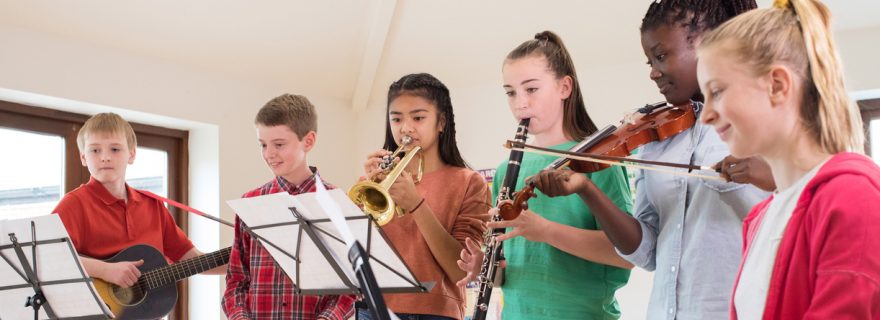Music on prescription: Train your body and brain
Music is intertwined in the daily life and social events of many cultures around the world. However, the music sector has suffered great budget cuts during the past decades. Did you know that music has multiple beneficial effects besides making you smile?
Many orchestras have suffered budget cuts over the past decades, forcing them to merge or even disappear. During this time music education has also vanished in numerous primary schools, although it plays such an important role in the social and cognitive development of children. May 22 was National Buy a Musical Instrument Day. It is never too late to finally buy that guitar or piano and pursue your musical ambitions. Making music can help not only to lighten your mood, but also to train your body, brain, and social skills.
Music makes you smile, focus or relax
Listening to music can make you smile, but also help you regulate your body’s arousal state. Choosing the right song can make you feel either happy, focused, or relaxed. So what is known about the underlying neural mechanisms that drive this? Music can induce physiological responses regulated by neurons in the brainstem. Slow music is related to a reduction in blood pressure, heart rate, and respiration, whereas faster music is related to an increase in these measures. Furthermore, listening to relaxing music (e.g. no words and slow tempo) has been shown to diminish stress, even in patients undergoing surgery. This is probably because music can distract you and regulate your mood. Musical interventions, including classical or meditative music, have also been shown to decrease stress hormone levels.
Music helps you lose weight
Listening to music makes your work-out more enjoyable. Music is also a cue for movement that helps you start your physical exercises and maintain them. Moreover, actively performing music, such as singing or playing an instrument, triggers the release of endorphins. Endorphins are also known as the “feel-good hormones” as they create a happy feeling. It has been demonstrated that these endorphins can help you burn calories by mobilizing energy stores. Music is not a replacement for regular physical exercise. However, listening to music can help you optimize your work-out, and making music can help you burn even more calories.
Music enhances cognitive skills
Music lessons in children have been related to cognitive enhancements, such as a higher IQ. Actively playing a musical instrument has been linked with greater cognitive enhancements than merely listening to music. Moreover, making music increases brain connections. These brain connections are reflected in white matter tracts, which have been linked with cognitive skills. Research has demonstrated that musicians have larger white matter tracts. Starting with playing an instrument at a young age has been linked with even larger white matter tracts.
Music boosts your social skills
Making music together with others, such as in an orchestra or choir, also involves a lot of social processes. Some examples are communication, peer collaboration, and dependability. Performing music in a group can also facilitate group cohesion and promote positive peer interactions. These social aspects of music can be exploited in music therapy to enhance social skills. Music therapy has indeed been shown to improve social skills in children and adolescents with social skill deficits. This has been shown in young people with a variety of disorders linked with social skill deficits, such as autism spectrum disorders and anxiety disorders.
Empower children with music education
Are you still hesitating about finally buying that instrument after reading all these beneficial effects of music? Making music can improve your mood, health, and cognitive and social skills. This is why music education is such a crucial part of children’s development. Although music education in primary schools was very sparse about a decade ago, new initiatives have stimulated its return. One example is 'meer muziek in de klas', which aims to give all 1.6 million Dutch primary school children structural music education. These initiatives should be encouraged and continued.
Another fantastic project to bring classical music to children in disadvantaged neighborhoods started in Brazil. Projeto Guri provides music education and the collective practice of music to over 50 thousand students in São Paulo. This also enables children from the poorest favelas of Brazil to play an instrument, which would otherwise be unaffordable for their families. A similar initiative has emerged in the Netherlands, which started in the multicultural neighborhood “de Bijlmer” in Amsterdam. Stichting Leerorkest provides music education to children during school. It gives them the chance to play an instrument and make music together with their classmates. This shows that music can even pave the way for social inclusion.





